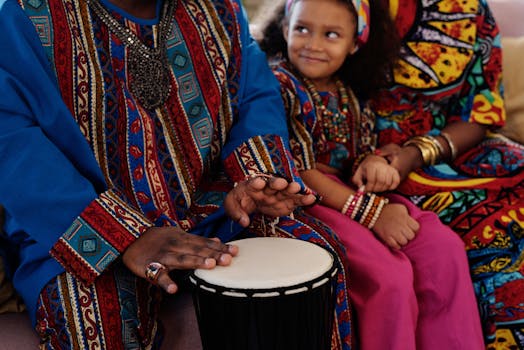Afrobeat to the World: How African Music is Influencing the Global Music Scene

A
frobeat is a musical genre that has its roots deeply planted in the African soil, specifically Nigeria. It is a fusion of traditional Yoruba music, jazz, highlife, funk, and chanted vocals, combined to create a unique sound that is both captivating and infectious. The genre was popularized in the 1970s by Nigerian musician Fela Kuti and his band Africa '70. Today, Afrobeat has transcended its African borders and is influencing the global music scene in a significant way.
The journey of Afrobeat from local clubs in Lagos to international stages is a testament to the power of music as a universal language. The genre's pulsating rhythms and enchanting melodies have found resonance with audiences worldwide, leading to its incorporation into various forms of music. From pop to hip-hop, reggae to dance music, traces of Afrobeat can be found in numerous contemporary genres.
The global influence of Afrobeat can be attributed to several factors. Firstly, the advent of digital technology has made it easier for music from different parts of the world to reach a global audience. Streaming platforms such as Spotify and Apple Music have played a crucial role in this regard, allowing listeners from all corners of the globe to discover and enjoy Afrobeat.
Secondly, collaborations between African artists and their counterparts from other parts of the world have also contributed to the spread of Afrobeat. These collaborations have not only resulted in chart-topping hits but have also fostered cultural exchange and mutual appreciation among artists from diverse backgrounds.
Moreover, the rise of Afrobeats - a sub-genre of Afrobeat - has further propelled African music onto the global stage. Afrobeats is characterized by its fusion of various African musical styles with Western pop and hip-hop. Artists like Wizkid, Burna Boy, and Davido are at the forefront of this movement, gaining international recognition and collaborating with renowned artists such as Drake, Beyoncé, and Ed Sheeran.
The influence of Afrobeat on the global music scene is not just about the sounds and rhythms; it's also about the messages conveyed through the music. Afrobeat has always been a genre that speaks to social and political issues. Fela Kuti used his music as a tool for political activism, speaking out against corruption and injustice. Today, many Afrobeat artists continue this tradition, using their platform to address societal issues.
The global embrace of Afrobeat is a testament to the power of African creativity and its ability to shape global culture. It's a reminder that music is a universal language that transcends borders, languages, and cultures. As Afrobeat continues to influence the global music scene, it serves as an affirmation of Africa's significant contribution to the world of music.
The journey of Afrobeat from local clubs in Lagos to international stages is a vibrant illustration of how African music is influencing the global music scene. Its pulsating rhythms and enchanting melodies have found resonance with audiences worldwide, leading to its incorporation into various forms of music. From pop to hip-hop, reggae to dance music, traces of Afrobeat can be found in numerous contemporary genres.
In essence, the rise of Afrobeat on the global stage signals a shift in the musical landscape. It's an indication that audiences are seeking more diverse sounds and narratives in their music. As we move forward, it's clear that Afrobeat will continue to play a significant role in shaping the future of global music. The world has indeed welcomed Afrobeat with open arms, and it's exciting to imagine what the future holds for this vibrant genre.
This article was generated by AI